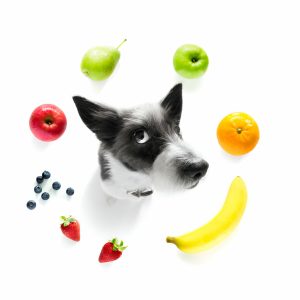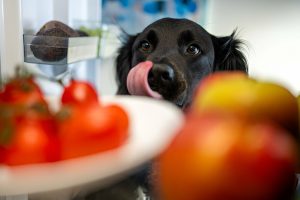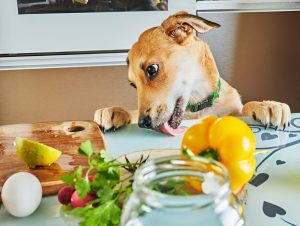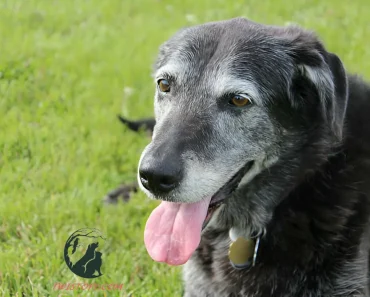
Safe for Dogs
It’s natural to want to share your favorite snacks with your dog instead of sticking to regular dog treats. However, just because something is safe for humans doesn’t mean it’s safe for dogs. While some human foods are perfectly fine for dogs, others can be harmful or even dangerous. That’s why it’s important to know which fruits and vegetables are safe for your furry friend to eat.
Safe for Dogs
Dogs process food differently than humans, and consuming the wrong foods can result in serious health issues or, in severe cases, even death. While dogs, as omnivores, don’t require fruits or vegetables in their diet, offering dog-safe options as an occasional treat is perfectly fine. Many fresh dog food formulas include fruits and vegetables because they provide valuable vitamins, minerals, and antioxidants. Keep reading to discover which fruits and vegetables are safe to share in moderation and which ones should be avoided entirely.
Safe fruits and vegetables for dogs to Eat
Apples
Yes, dogs can eat apples! They are a great source of vitamins A and C, as well as fiber, making them an excellent snack, especially for senior dogs. Apples are low in protein and fat, which adds to their suitability. Just remember to remove the seeds and core before serving. For a refreshing treat in warm weather, try freezing apple slices. Apples are also commonly used as an ingredient in apple-flavored dog treats.
Avocado
No, dogs should avoid avocado. While it may be a nutritious snack for humans, it is not safe for dogs. The pit, skin, and leaves of the avocado contain persin, a toxin that can cause vomiting and diarrhea in dogs. Although the fleshy part of the fruit contains less persin, it can still be harmful. Additionally, avocado flesh is high in fat, which can upset a dog’s digestive system or contribute to health issues like pancreatitis if consumed in large amounts. If you want your dog to benefit from avocado, consider dog treats specially formulated with avocado for skin and coat health.
Bananas
Yes, dogs can eat bananas. When given in moderation, bananas make an excellent low-calorie treat. They are rich in potassium, vitamins, biotin, fiber, and copper. Additionally, they are low in cholesterol and sodium. However, due to their high sugar content, bananas should only be offered as an occasional treat rather than a regular part of your dog’s diet. You can also find banana-flavored dog treats that never go bad!
Blueberries

Safe for Dogs
Yes, dogs can eat blueberries. These superfoods are packed with antioxidants that help prevent cell damage in both humans and dogs. They’re also high in fiber and phytochemicals. Need a fun treat for your dog to catch in mid-air? Blueberries are perfect! This nutrient-rich fruit is often used in blueberry dog treats and is sometimes combined with other superfoods like yogurt for added benefits.
Cantaloupe
Yes, cantaloupe is safe for dogs. This fruit is packed with nutrients, low in calories, and a great source of water and fiber. However, it is also high in sugar, so it should be given in moderation, particularly for overweight dogs or those with diabetes. For a fun, refreshing treat, try freezing cantaloupe balls or cubes as a summer snack for your dog.
Cherries
No, dogs should not eat cherries. While the fleshy fruit around the seed is safe, the rest of the cherry plant contains cyanide, which is toxic to dogs. Cyanide disrupts the transport of oxygen in the body, preventing blood cells from getting enough oxygen.
If you have a cherry tree, make sure your dog cannot access fallen fruit. If your dog consumes cherries whole or cherry pits, watch for signs of cyanide poisoning, such as dilated pupils, difficulty breathing, and red gums. These are veterinary emergencies. If you’re eating cherries, dispose of pits in a dog-proof trash can and ensure that children don’t share cherries or pits with your dog. For safe access to the antioxidants found in cherries, look for cherry-flavored dog treats.
Cranberries
Yes, cranberries are safe for dogs to eat. Both fresh and dried cranberries can be given to dogs in small amounts. However, whether your dog will enjoy the tartness is another matter. As with any treat, moderation is key, as too many cranberries can cause an upset stomach. Keep in mind that many dried cranberries intended for humans are sweetened, which means they contain extra sugar that isn’t necessary for your dog. If your dog enjoys the tangy flavor of cranberries, opt for unsweetened fresh or frozen cranberries, or choose cranberry-flavored dog treats.
Cucumbers
Yes, dogs can eat cucumbers. They are especially beneficial for overweight dogs, as they are low in carbohydrates and fat, while being hydrating and filling. Cucumbers are rich in vitamins K, C, and B1, as well as potassium, copper, magnesium, and biotin. They make a great cool treat in hot weather, and you can even freeze cucumber slices for an added enrichment snack.

Safe for Dogs
Grapes
No, dogs should never eat grapes. Grapes and raisins (dried grapes) are extremely toxic to dogs, regardless of their breed, age, or sex. Consuming grapes can cause acute kidney failure, which is potentially fatal. If you suspect your dog has eaten grapes, contact your veterinarian immediately. Always be cautious with grapes around dogs, especially if you have children who may eat them. When discarding grapes or raisins, ensure they are not placed in a compost heap accessible to your dog, and make sure your trash can is dog-proof or placed where your dog cannot reach it.
Mango
Yes, dogs can eat mangoes. This sweet, juicy tropical fruit is packed with vitamins A, B6, C, and E, along with potassium, beta-carotene, and alpha-carotene. However, just like with other fruits, be sure to remove the hard pit, as it contains small amounts of cyanide and can be a choking hazard. Mangoes are high in sugar, so they should be given as an occasional treat, especially for dogs that are prone to weight gain. For a cleaner option, you can give your dog chewy mango-flavored dog treats to enjoy the nutritional benefits.
Oranges
Yes, dogs can eat oranges. Veterinarians agree that oranges are safe for dogs, though some dogs may not enjoy the strong citrus scent or taste. Oranges are a great source of vitamin C, potassium, and fiber, and in small amounts, the juicy flesh of an orange can be a tasty treat. However, it’s important to remove the peel and seeds before giving it to your dog, as the peel can be tough on their digestive system, and the oils may make the fruit unappealing to them. If your dog isn’t fond of fresh citrus, there are also dog treats that contain orange flavor.
Peaches
Yes, peaches are safe for dogs to eat. Fresh or frozen peaches, in small amounts, are a good source of fiber and vitamin A. However, like cherries, peach pits contain cyanide, so make sure to completely remove the pit and any surrounding areas before offering the flesh to your dog. Ensure that the pits are properly disposed of in a dog-safe trash can. Avoid canned peaches, as they typically come with high amounts of sugary syrup, which is not healthy for dogs. Frozen peach slices can be a refreshing treat for dogs on hot days.
Pears
Yes, dogs can eat pears. Pears make a great snack as they are rich in copper, vitamins C and K, and fiber. When sharing pears with your dog, ensure you cut the flesh into small, bite-sized chunks and remove the pit and seeds, as the seeds contain traces of cyanide. Avoid canned or jarred pears in sugary syrups, even those labeled “in their own juice,” as they contain unnecessary added sugar. You can also find pear-flavored dog treats that often feature other functional ingredients like duck or salmon.
Pineapple

Yes, pineapple is safe for dogs to eat. A few chunks of pineapple can be a sweet, refreshing treat for your dog, as long as you remove the prickly peel and crown. This tropical fruit is packed with vitamins, minerals, and fiber, and contains bromelain, an enzyme that helps dogs absorb proteins more easily. As with other fruits, avoid canned or packaged pineapple in sweetened syrups, as the added sugars are unnecessary, particularly for dogs at risk of obesity. You can also find pineapple-flavored dog treats for a tropical treat on the go.
Pumpkin
Yes, pure pumpkin is a healthy food for dogs. Packed with antioxidants, pumpkin is especially beneficial for relieving both diarrhea and constipation in dogs. If you’re buying canned pumpkin, make sure to choose 100% pumpkin puree. Alternatively, you can roast a pumpkin yourself and feed your dog the peeled flesh. There are also many pumpkin-based supplements and dog treats available for dogs to enjoy.
Raspberries
Yes, dogs can eat raspberries in moderation. These berries are safe for dogs and packed with antioxidants that are beneficial for their health. Raspberries are low in sugar and calories, but rich in fiber, manganese, and vitamin C. They are particularly good for senior dogs due to their anti-inflammatory properties, which can help with aging joints. However, raspberries contain small amounts of xylitol, so it’s important to limit your dog’s intake to no more than eight ounces at a time. Alternatively, you can opt for dog treats that include raspberry as an ingredient.
Strawberries
Yes, dogs can eat strawberries. They are rich in fiber and vitamin C, and they also contain an enzyme that can help whiten your dog’s teeth as they eat them. Like all fruits, strawberries have natural sugar, so they should be given in moderation. Frozen strawberries make a fun enrichment treat for dogs. Alternatively, you can enjoy the strawberries yourself and hide your dog’s favorite training treat in a cute strawberry-shaped snuffle mat!
Tomatoes
No, dogs should avoid tomatoes. While the ripe flesh of the tomato fruit is generally safe for dogs, the green parts of the tomato plant, such as the stems and leaves, contain a toxic substance called solanine. Although a dog would need to consume a large amount of the plant to become ill, it’s safest to avoid tomatoes altogether. If your dog enjoys exploring your garden, be sure to keep them away from tomato plants. If your dog loves the taste of tomatoes, there are dog-safe tomato treats available that feature ripe, antioxidant-rich tomatoes.
Watermelon
Yes, dogs can eat watermelon. Just make sure to remove the rind and seeds, as they can cause intestinal blockages. The flesh of the watermelon is safe for dogs and is full of vitamins A, B6, and C, as well as potassium. With 92% water content, watermelon is an excellent way to keep your dog hydrated on hot summer days. You can freeze chunks of watermelon for a fun, cooling treat. (You can even find watermelon-flavored dog treats!)
Vegetables That Dogs Can and Cannot Eat
Sure! Here’s the rephrased version in English:
Safe and Unsafe Vegetables for Dogs

Safe for Dogs
Asparagus
Although asparagus isn’t harmful to dogs, it doesn’t offer much in terms of nutritional benefits. Raw asparagus is too tough for dogs to eat, and when cooked until soft, it loses much of its nutritional content. If you’re looking to share vegetables with your dog, there are better options. That said, if your dog enjoys asparagus, it is generally safe for them to eat.
Broccoli
Broccoli is generally safe for dogs when given in small amounts and can make a great occasional treat. However, caution is necessary. Broccoli is high in fiber and vitamin C, low in fat, but the florets contain isothiocyanates, which could cause mild to severe stomach irritation in some dogs. Additionally, the tough stalks of broccoli can potentially cause a blockage in the esophagus. To reduce these risks, it’s best to serve your dog cooked broccoli. Another fun option is to provide them with a broccoli-shaped chew toy while you enjoy your beef and broccoli meal. Safe for Dogs
Brussels Sprouts
Yes, dogs can eat Brussels sprouts. These tiny vegetables are packed with nutrients and antioxidants beneficial for both humans and dogs. However, don’t overfeed them to your dog as they can cause significant gas. Cabbage is also safe for dogs—since Brussels sprouts are essentially mini cabbages—but sharing cabbage with your dog comes with the same flatulence issue. Don’t say we didn’t warn you! If your dog loves Brussels sprouts or cabbage and you’re okay with the potential side effects, you might want to consider some dehydrated dog foods that include these leafy greens as an ingredient. Safe for Dogs
Carrots
Yes, dogs can enjoy carrots. These crunchy, low-calorie snacks are packed with fiber and beta-carotene, which the body converts into vitamin A. Plus, chewing on carrots helps keep your dog’s teeth clean. Carrots are commonly found in many dog foods and are also used in various dog treats. Safe for Dogs
Celery
Celery is safe for dogs to consume. It’s rich in vitamins A, B, and C, and contains nutrients that support heart health and may even have cancer-fighting properties. In addition to these benefits, celery is known to help freshen your dog’s breath. You can find celery-flavored dog chews, which can be a fun treat for your pet. Safe for Dogs
Green Beans
Yes, dogs can eat green beans. Whether they’re chopped, steamed, raw, or canned (as long as they’re plain), green beans are safe for dogs. These vegetables are full of essential vitamins and minerals, as well as fiber, and are low in calories. For added convenience, opt for unsalted canned green beans or serve frozen green beans as a fun and healthy snack for your dog. Safe for Dogs
Mushrooms
Dogs should avoid mushrooms. Wild mushrooms can be toxic to dogs, and while only a small portion of the 50,000 mushroom species worldwide are harmful, those that are poisonous can seriously harm or even kill your dog. While wild mushrooms are always off-limits, store-bought mushrooms that are washed and intended for human consumption are generally safe for dogs in small amounts. Safe for Dogs
Onions
Dogs should never consume onions. If you suspect your dog has eaten onions, it’s important to contact your veterinarian immediately. Onions, along with leeks and chives, belong to the Allium plant family, which is toxic to most pets, particularly cats. Onions can cause the destruction of your dog’s red blood cells and lead to symptoms like vomiting, diarrhea, stomach pain, and nausea. Some dog breeds, like Akitas and Shiba Inus, are more sensitive to onion poisoning, but all dogs are at risk. Ensure that children don’t share food containing onions with your dog, and keep onion scraps and leftovers out of their reach. Safe for Dogs
Peas
Yes, dogs can eat peas. Green peas, snow peas, sugar snap peas, and garden or English peas are all safe for dogs to enjoy. These peas are rich in vitamins, minerals, protein, and fiber. You can give your dog fresh or frozen peas, but be sure to avoid canned peas with added salt.Safe for Dogs
Spinach
Dogs can eat spinach, though it’s not one of the top vegetables to share with your pet. Spinach contains oxalic acid, which can interfere with the body’s ability to absorb calcium and potentially lead to kidney damage. While it would take a large amount of spinach to cause harm, it’s safer to opt for other vegetables. If you want to provide the benefits of spinach, you can try spinach-based dog treats as an occasional snack.Safe for Dogs






